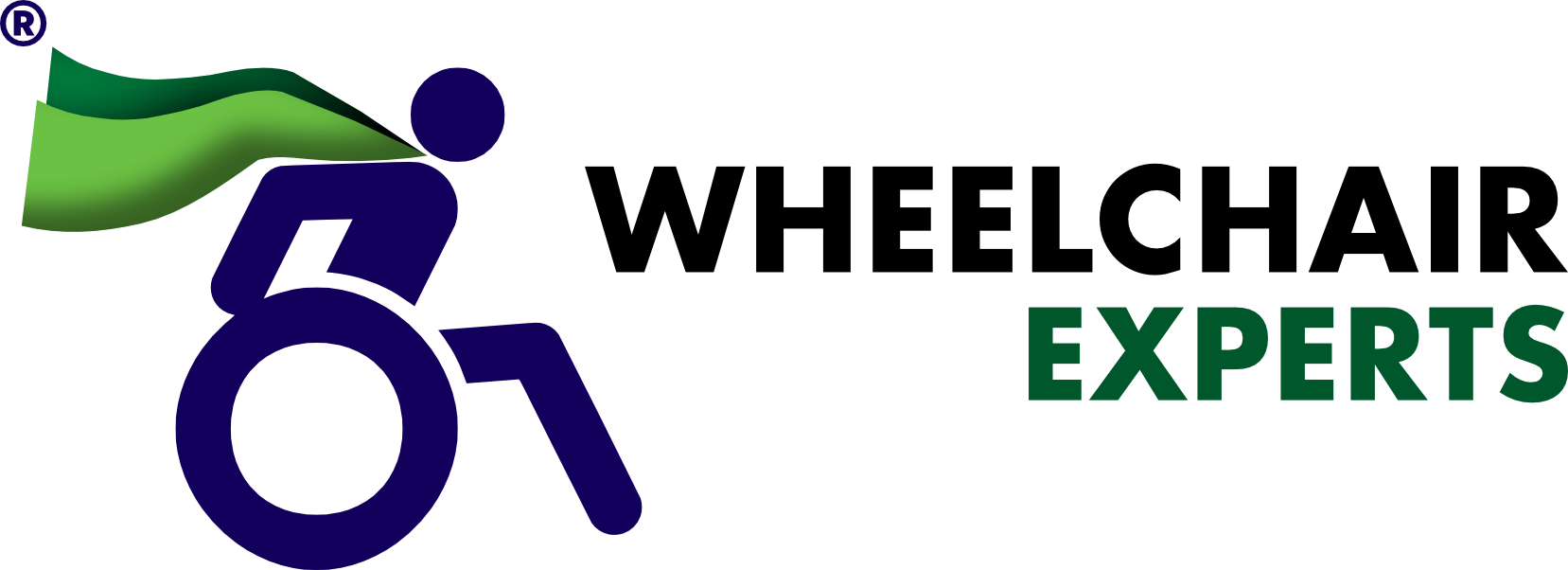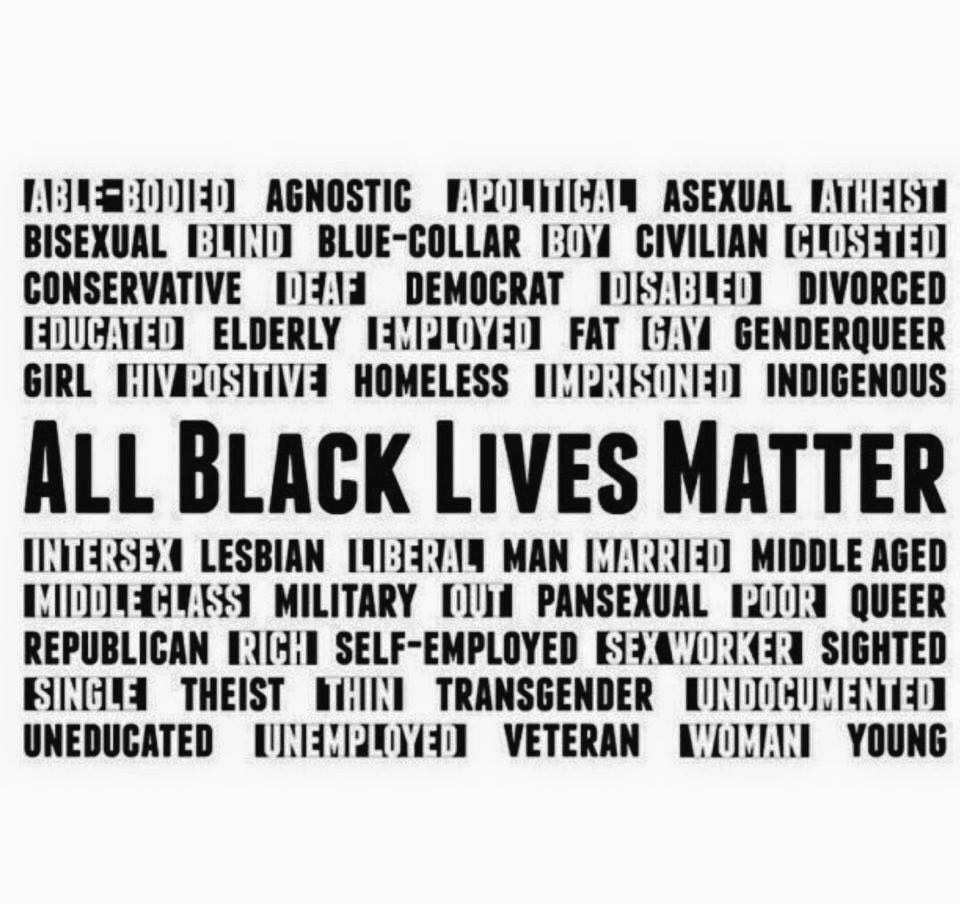As I moved my arms back and forth while marching next to my wife in our very first protest, chanting Black Lives Matter — two beautiful strong brown skinned African Americans in the midst of a COVID-19 and racism pandemic — I became overwhelmed with thoughts and emotions. I reflected on feeling grateful for the opportunity to participate in a protest that meant so much to me, as I needed an outlet to reclaim my identity as a strong, talented, biracial black transgender man with multiple disabilities.
I reflected on how much I had to fight to get to this point and how much I will continue to fight to end systemic racism and oppression, and the end to the marginalization of communities that are viewed as insignificant by society’s dominant culture. I reflected on how rare and challenging it is to be able to express and be authentically present in the totality of who I am with all of my intersecting identities while advocating for justice and change. Each of my identities inform the other and each brings its own experience of oppression that, when it’s all combined, have created a complex convergence of marginalization and oppression experienced throughout my life as a brown-skinned biracial black transgenderman with multiple disabilities.
Reflecting on Who I Am
 In the wake of the death of George Floyd, Ahmaud Arbery, Breonna Taylor, and Tony McDade there are not enough words to describe the heaviness, pain, sadness, fear, anger, and more that I feel. Watching and reading the news has been another lived reminder that I and my family and other black and brown friends and communities know daily what it means to live in a society with deeply embedded covert and overt racism. My identity as a biracial black man with multiple disabilities was formed with this understanding at a young age. I grew up in predominantly white schools and experienced fall-out estrangement of family relations due to my parents marrying outside of their race and having children.
In the wake of the death of George Floyd, Ahmaud Arbery, Breonna Taylor, and Tony McDade there are not enough words to describe the heaviness, pain, sadness, fear, anger, and more that I feel. Watching and reading the news has been another lived reminder that I and my family and other black and brown friends and communities know daily what it means to live in a society with deeply embedded covert and overt racism. My identity as a biracial black man with multiple disabilities was formed with this understanding at a young age. I grew up in predominantly white schools and experienced fall-out estrangement of family relations due to my parents marrying outside of their race and having children.
The racial trauma of what it means to be black and brown in our society was passed down to me from my grandmother, mother, and our family. At the same time racial slurs, maltreatment, microagressions, and discrimination was dished out in our neighborhood, communities, schools, and when we sought assistance. This racial trauma interacted with my growing up with multiple disabilities in a community without much accessibility and full of ableism. I experienced the same slurs, maltreatment, microagressions, and discrimination, but in the context of my disabilities. Then when I got older and came out as transgender — all the same.
I internalized and wrestled with the consistent messages that I was an abomination just because my parents got married and decided to have a child. I internalized the consistent messages that my physical disabilities were the punishment for that marriage. The messages and treatment I received from my peers and adults was that both the color of my skin and my physical and developmental disabilities made me less than human. When I tried to fight against those messages I was shut down in various ways. And when I expressed my voice, it was unheard, filtered through their biases, and changed. When I tried to advocate for myself I was shut down by those who viewed me as unable and those who meant well and thought they knew what was best for me.
Because of these experiences and more, there was not a place I felt safe in or a place where I knew I could be myself and be loved unconditionally until recently. These experiences merged to create an interactive, complex, deep lens through which my identity developed around my race and disabilities. I took the complex convergence of marginalization and oppression I externally experienced, and internalized it because that was all I knew and I didn’t have anything or anyone to really counter it by offering different data or support navigating it. I wish I had earlier in my life, but I am thankful for the therapy and work I have done, including my advocacy work, to get to know myself and merge these once very separate identities into one, while fighting for change.
A New Lease on Life Through Reclaiming My Identity
It was a surreal moment to be back in that community I grew up in that was a source of so much pain and part of so much that needed healing. To be in that community with my wife at a protest for George Floyd and the black lives lost to police and other racially-based violence against black and brown individuals … it was surreal and very emotional. It is still inexpressible by words as I remember seeing all the crowds, hearing the speeches, marching in protest and gathering because the violence needs to end. It should not be a crime and death sentence to be born black in the United States because All Black Lives Matter.
It took me a long time to include myself in believing that my life also mattered when I say “All Black Lives Matter” as a brown skinned biracial black man who is also transgender with multiple disabilities. These three parts of my identity never really blended well together and I have rarely received messages of kindness, worth, love, and value for all three at the same time — rather I have received the opposite, which assisted in the development of my self-hatred. I truly believed I was an abomination and a mistake while growing up and into adulthood because of 1. being black and biracial, 2. being a transgender man and 3. having multiple disabilities.
This self-hatred impacted how I interacted with myself and the world around me, including how I participated in advocacy work in and around my community. Oftentimes in my experience, my advocacy work itself existed in one of these identity communities at a time without much mention of the other. I might be seen by my race while my gender and disabilities were not acknowledged or didn’t have a place; and the same would occur when it came to interacting with groups focused on ableism and gender identity. Not feeling like I was being seen as a whole person, or that anyone understood the marginalization and oppression being experienced in relation to the other parts of who I am, created an isolating feeling. This further fostered an internal separation of something that was naturally converging by the experience of marginalization within its intersectionality.
So, something changed that day for me while I was rolling in my wheelchair next to my wife during our very first protest. I was reclaiming my identity, power, and value on my own terms. I was participating for George Floyd, Breonna Taylor, Ahmaud Arbery, Tony McDade, and all black and brown people, including the millions of those who have lost their lives to police violence and other hate crimes, social injustice due to lack of equity and access to quality services, living conditions, and medical care/treatment, and more.
I was participating for my family and friends. I was participating for accountability and social justice. I was participating for myself. I was fighting so that all parts of who I am may be authentically free to live fully — out and proud. Fighting so that all people may have the opportunity to live into their authentic selves safely, equally, and freely in all aspects of everyday life.
I was fighting so that All Black Lives Matter. Because systemic racism needs to change. Systemic oppression needs to change. I was reclaiming who I am by saying that I am not an abomination. I am not a mistake. I am not less than; not according to my race, my gender, or my disabilities. I have worth and value. I am human. I am irreplaceable. I matter. My life matters. All of who I am matters. This always has been true of me and every black and brown life.
What will always remain true is that All Black Lives Matter Period without any questions or conditions. This includes who I am in all my complex beauty as a biracial black transgender man with disabilities.
** This post was originally published on https://www.newmobility.com/2020/06/black-lives-matter-finding-reclaiming-who-i-am/



